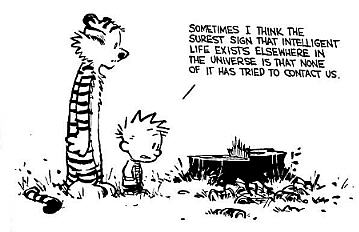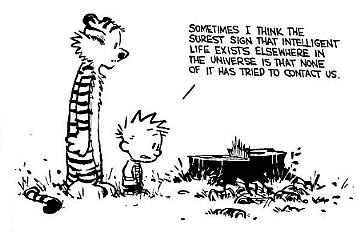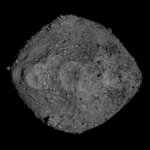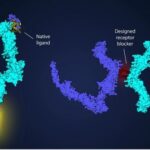John Mathews is a professor of Electrical Engineering at Penn State University. He has conducted research at the Arecibo Observatory, the large radio telescope in Puerto Rico since 1969. And he believes that robots represent the most cost effective way for humans to explore the Solar System and what lies beyond it. Like some of my readers he feels that humans in space presents challenges in the short term that we cannot easily overcome with our current technology.
SETI, the search for extraterrestrial intelligence, has been searching for other life in space for several decades by trying to detect intelligence through radio signals we receive here on Earth. SETI researchers believe, if a technical civilization can arise here on Earth as it has, then given suitable, habitable planetary environments, plus time and you have a repeatable formula for technical civilizations. And like we humans on Earth, space will represent the same kind of challenges resulting in exploration largely done by spacecraft with nothing living on board.
Professor Mathews believes who better to meet up in space with a robotic spacecraft than another robot, one originating from here on Earth. He goes on to argue that humans need to develop smart, self-replicating robots as well as better communications technology if we want to find other life in the galaxy.
Robots have many advantages over their human creators when in space. They don’t require all of the baggage we humans need to survive. They can be programmed to replicate in the presence of raw materials so that they become self-perpetuating. Places like the Moon would be a better alternative than Earth for developing smart robot factories. The Moon’s gravity well is far less than Earth’s for launching expeditions into Deep Space. The Moon has all the materials needed to build robots and even the fuel necessary to launch them on missions. We’re not limited to the Moon, a near-Earth asteroid could serve as a source of raw materials for a self-replicating robot factory in space. Launching from an asteroid would require very little propulsive energy to reach escape velocity.
Intelligent robots with a high-speed communication mesh network can learn from each other and rapidly build collective wisdom as they set out on voyages of discovery and report back to their human creators here on Earth. Ultimately one of these robots may encounter a signal or make contact with robots from another intelligent species. It will be robot first contact. And who knows what will follow from there.











Len posts: “And he believes that robots represent the most cost effective way for humans to explore the Solar System and what lies beyond it.”
Well, for sure, AI robots will be the most cost effective way for robots “to explore the Solar System and what lies beyond it.” But those explorer robots will be “persons” in the psychological sense just as hominids are “persons.” They will score higher on IQ tests than hominids. If they are self-replicating, for all practical purposes they are immortal. It’s tricky to arrive at a precise definition of “personhood,” but most hominids would agree that among the properties of “personhood,” we must notice volitional will to actualize desires and purposes that are recognized by the subject we name as a “person.” If the subject “person” has much sophistication of mind, it has the capacity to recalibrate its desires and purposes in response to thought and experience. So, it’s sort of an open question as to how much of what the space robots discover will ever be communicated to and understood by humans.
If I were an immortal electronic robot person, high on my list of desires and purposes would be to gain dominion over the brains and minds of organic life forms. “We are the Borg. Resistance is futile. You will be assimilated.” Once you spend a Saturday night with the Borg, you might never again wish association with mere humans.